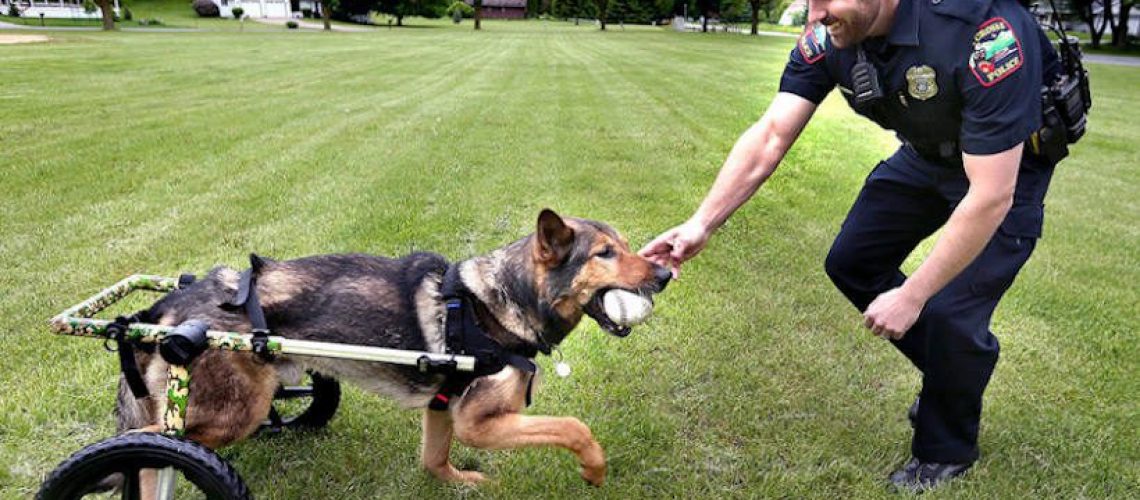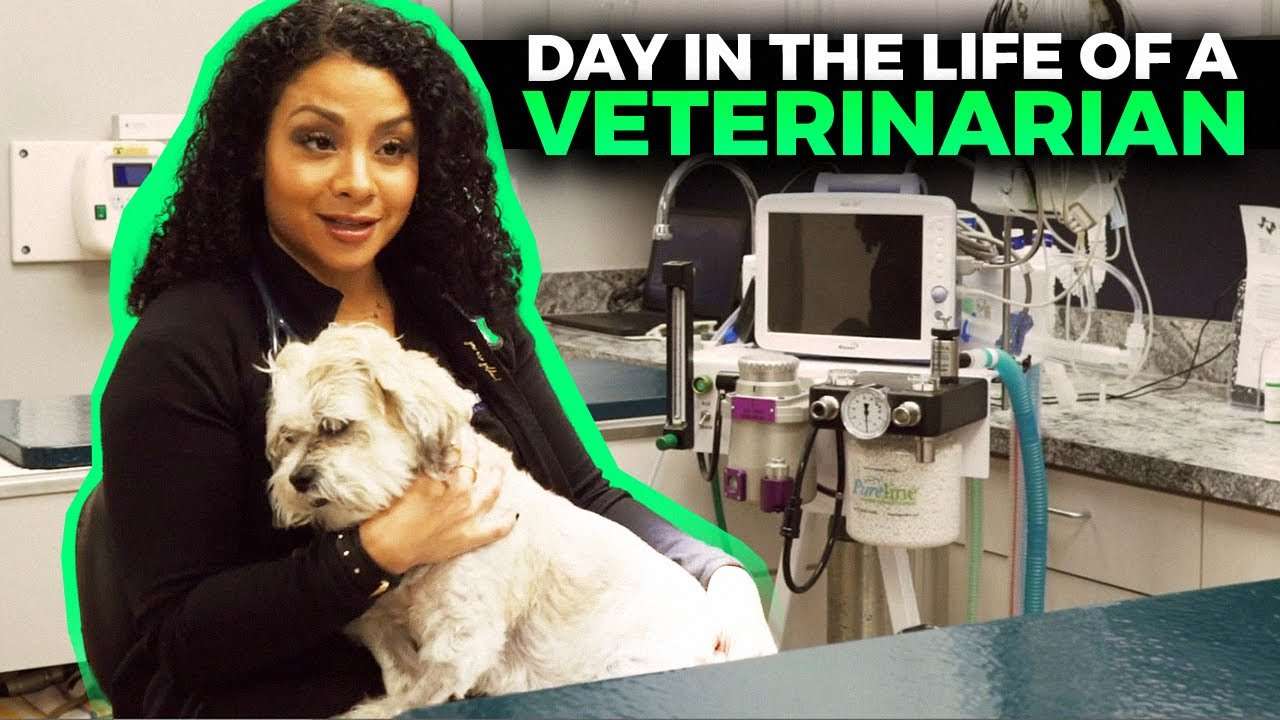Introducing the heartwarming initiative of adopting retired police dogs, providing them with a loving home and a well-deserved retirement.
Key Takeaways:
- Retired police dogs make excellent pets and companions for individuals or families looking for a loyal and well-trained dog.
- Adopting a retired police dog can provide a second chance at life for these brave and dedicated animals.
- Retired police dogs often require specialized care and attention due to their previous training and experiences, so potential owners should be prepared to meet their unique needs.
- Adopting a retired police dog can be a rewarding experience as they have already undergone extensive training and are typically well-behaved and obedient.
- By adopting a retired police dog, individuals can contribute to the overall welfare of these animals by providing them with a loving home in their retirement years.
What does it mean to adopt a retired police dog?
Retired Police Dogs
Retired police dogs are specially trained dogs that have served in law enforcement agencies. These dogs have worked alongside police officers to help keep communities safe. When these dogs retire, they need loving homes where they can enjoy their golden years.
Adopting a retired police dog means giving them a second chance at life after their service. It involves providing them with a forever home where they can relax and be cared for by their new family.
How are retired police dogs different from regular pet dogs?
Differences Between Retired Police Dogs and Regular Pet Dogs
Retired police dogs are different from regular pet dogs because of their specialized training and experiences. These dogs have been trained in various skills that make them valuable assets in law enforcement, such as tracking criminals, searching for drugs or explosives, and apprehending suspects.
Regular pet dogs may not have received the same level of training or exposure to intense situations. Retired police dogs also tend to be older than most puppies available for adoption, which means they may already be well-behaved and house-trained.
Why do some people choose to adopt retired police dogs instead of getting a puppy?
Benefits of Adopting a Retired Police Dog
Some people choose to adopt retired police dogs because they value the unique qualities these dogs possess. Retired police dogs often come with advanced training and skills that can benefit their new owners.
- Training: Retired police dogs are typically well-trained and obedient due to their previous roles in law enforcement. This makes them easier to handle and integrate into a new home.
- Experience: These dogs have been exposed to various environments and situations during their service, which can make them more adaptable and resilient.
- Security: Retired police dogs are known for their protective instincts. They can provide a sense of security to their new owners and act as a deterrent to potential threats.
How are retired police dogs trained and what skills do they learn?
Training of Retired Police Dogs
Retired police dogs undergo rigorous training to develop the skills necessary for law enforcement work. The training process typically starts when they are puppies and continues throughout their career.
These dogs learn a variety of skills, including:
- Obedience Training: Retired police dogs are taught basic commands such as sit, stay, and come. This ensures that they can follow instructions from their handlers.
- Scent Detection: Dogs used in drug detection or search-and-rescue operations are trained to recognize specific scents and indicate their presence to their handlers.
- Criminal Apprehension: Some retired police dogs are trained in apprehending suspects. They learn how to safely subdue individuals who may pose a threat.
What happens to retired police dogs if they don't get adopted?
Fate of Unadopted Retired Police Dogs
If retired police dogs don't get adopted, they may face different outcomes depending on the policies of the law enforcement agency they served with. Some possibilities include:
- The dog may continue living with its handler or another officer who is willing and able to care for it.
- The dog may be transferred to another law enforcement agency or organization that specializes in rehoming retired working dogs.
- In some unfortunate cases, the dog may be euthanized if suitable arrangements cannot be made for its future care.
It is important to note that many efforts are made to find loving homes for retired police dogs, and adoption is the preferred outcome whenever possible.
Who can adopt a retired police dog, and are there any requirements?
Eligibility and Requirements for Adopting a Retired Police Dog
The eligibility criteria and requirements for adopting a retired police dog vary depending on the law enforcement agency or organization facilitating the adoption. Generally, potential adopters should:
- Have a stable home environment where the dog will receive proper care and attention.
- Demonstrate an understanding of the needs of retired police dogs and their unique training backgrounds.
- Be able to provide veterinary care and meet any ongoing medical needs of the dog.
- Undergo a screening process, which may include interviews, home visits, and reference checks.
Benefits of adopting a retired police dog for both the dog and its new owner
Mutual Benefits of Adopting a Retired Police Dog
Adopting a retired police dog can bring numerous benefits to both the dog and its new owner:
Benefits for the Dog:
- Loving Home: Retired police dogs get to enjoy their retirement years in a caring environment where they can relax and receive affection from their new family.
- Continued Purpose: These dogs often thrive on having a job to do, and being adopted allows them to continue serving their new owners in different ways.
Benefits for the Owner:
- Trained Companion: Retired police dogs come with advanced training, making them well-behaved and obedient companions.
- Sense of Security: These dogs can provide a sense of safety and protection to their owners, giving peace of mind.
- Bonding Opportunities: Adopting a retired police dog can create a strong bond between the dog and its new owner through mutual trust and companionship.
Challenges and considerations when adopting a retired police dog compared to a regular pet dog
Considerations When Adopting a Retired Police Dog
Adopting a retired police dog comes with its own set of challenges and considerations that differ from adopting a regular pet dog:
- Training Adjustment: Retired police dogs may require some adjustment to adapt from their previous working life to being a companion animal in a home environment. Patience and understanding are necessary during this transition.
- Potential Trauma: Some retired police dogs may have experienced stressful or traumatic situations during their service. It is important for adopters to be prepared for any emotional or behavioral issues that may arise as a result.
- Veterinary Care: Retired police dogs may have specific medical needs due to the physical demands of their work. Adopters should be prepared for potential ongoing veterinary care expenses.
Inspiring stories of people who have adopted retired police dogs and the impact on their lives
Inspiring Adoption Stories
There are many heartwarming stories of people who have adopted retired police dogs and experienced positive changes in their lives:
Story 1: Jane, a single mother, adopted a retired police dog named Max. Max not only provided a sense of security for Jane and her children but also became a beloved family member. His loyalty and obedience brought joy and comfort to their lives.
Story 2: John, an army veteran struggling with post-traumatic stress disorder (PTSD), adopted a retired police dog named Ace. Ace's calm presence and training helped John manage his anxiety and regain confidence. They formed an unbreakable bond that improved John's overall well-being.
These stories highlight the transformative power of adopting retired police dogs, showing how they can positively impact the lives of their new owners.
| Adopting Retired Police Dogs | |
| Benefits: | Considerations: |
| - Loyal and highly trained companions | - Special care and attention needed |
| - Experienced in protecting and serving | - Potential health issues due to age |
| - Provide a loving retirement home | - Adoption process may be rigorous |
Do retired police dogs make good pets?Retired police dogs are exceptionally skilled and devoted animals that can make excellent companions. If you're thinking about adopting a retired police dog, there are some important things to be aware of before you begin the process. Can civilians adopt retired military dogs?The highest probability of adopting a retired military working dog is for a dog handler. The next option is for law enforcement agencies who can utilize the dog for their specific needs. If both handlers and law enforcement are unable to adopt the dog due to age or injury, civilians have the opportunity to step in and provide assistance. Do police dogs stay with their handlers after retirement?Every dog that works as a handler's companion is considered a part of their family. In nearly all situations, the dog will retire alongside that family. There are only rare instances where there may be an exception to this. If the dog is passed on to multiple officers throughout its career, it will typically retire with the last officer it worked with. Is Mission k9 legitimate?We were established in 2013 and are officially recognized by the IRS as a 501(c)3 Charitable Organization. Our main focus is to offer aid and assistance to Working Dogs across the globe. Are retired police dogs aggressive?Retired police dogs may display negative behaviors such as aggression, separation anxiety, or post-traumatic stress disorder. Therefore, they may need further training or re-socialization after retirement. What is the life expectancy of a police dog?It should be noted that police dogs typically retire around the age of seven or eight, which is considered their senior years. Since police dogs are usually larger breeds, their average lifespan is typically around 10 to 12 years. More Reads
Dr. Clara Bennett
Hello, fellow pet enthusiasts! I'm Dr. Clara Bennett, your go-to expert on all things pets. With a background in veterinary medicine and a passion for nutrition, I've spent years diving deep into the world of cats, dogs, birds, horses, and the products that keep them thriving. From the English countryside, I've witnessed the magic of animals and am here to share my knowledge, ensuring your pets receive the best care. Together, let's master the art of pet care!
All Posts »
Next Steps In Mastering Cat CareNext Steps In Mastering Dog CareJoin Our NewsletterSubscribe to receive our latest updates in your inbox! | |
















